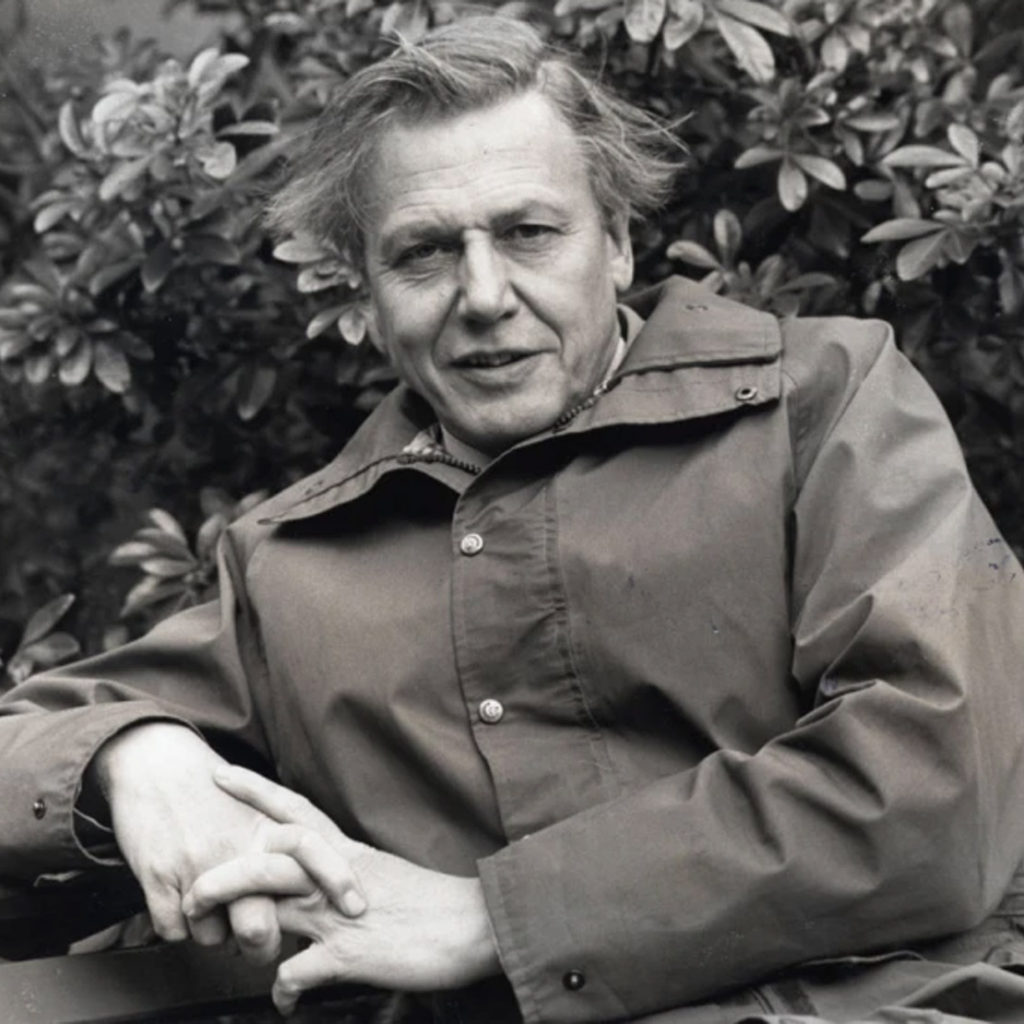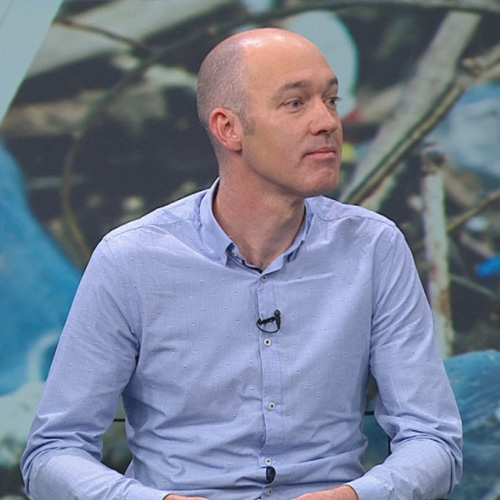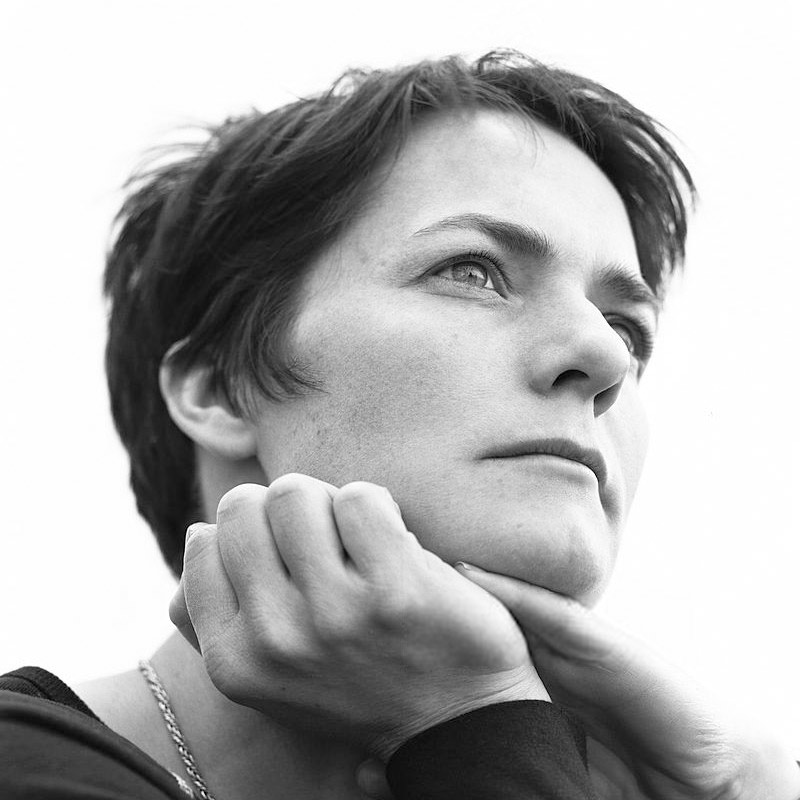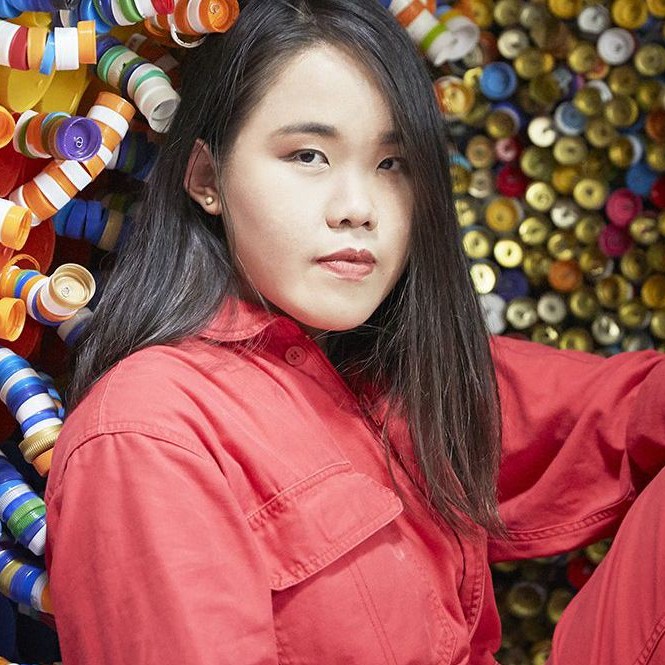
Sir David Attenborough sticks the plastic knife into single use plastics and the world wakes up to the problem.
*Portrait of Sir David Attenborough in 1984. Image by Neville Marriner/Daily Mail/Shutterstock.
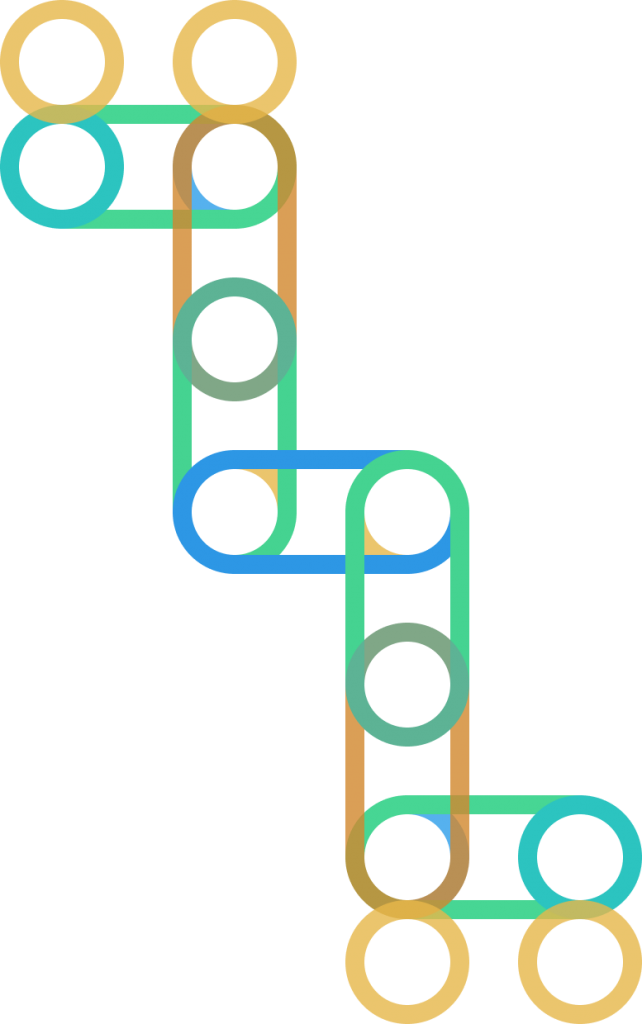
It took two people with a profound relationship with the oceans to wake the world up to our irresponsible behaviour unhealthy relationship with plastic.
While world record breaking seafarer, Dame Ellen MacArthur was tirelessly working to move the world towards a circular economy, another British institution, Sir David Attenborough was making another program about our oceans. Blue Planet II. While the first series helped people fall in love with the wonders of our oceans, the second installment, 16 years later, painted a much bleaker picture of life at sea.
Millions tuned in to watch in the UK, Europe, Asia and the US. The internet even slowed when 80 million Chinese viewers tuned in to stream the show.
When the seventh episode hit the screens on December 5, 2017 audiences were shocked by horrifying images of how, as a species, we were killing sealife by throwing the equivalent of one garbage truck a minute into our oceans.
A dead pelican skeleton with its stomach filled with plastic waste and other harrowing footage spoke louder than all of the statistics and studies previously released by NGOs and heralded Attenborough, one of the most treasured of British conservationists, to close with a moving call to action.
“Surely we have a responsibility to care for our blue planet. The future of humanity, and indeed all life on earth, now depends on us.”
Its impact was instant. An analysis of Twitter activity relating to plastic waste found that conversations around this topic of plastic waste in the first quarter of 2018 had more than doubled and 84% of viewers said it had changed their attitude to plastic.
The show forced the UK government to act and the HM Treasury investigation into ‘Tackling the plastics problem’ received the largest level of responses in history – 162,000.
Even the Queen of England tuned in and subsequently banned single use plastics and plastic straws on her estates. Prime minister Teresa May gave Chinese president Xi Jinping a copy of the box set on his visit to the UK in 2018 even though the Chinese government had already banned plastic imports before the program was aired.
For the plastics and the packaging industry, Blue Planet II, piled on the pressure already being felt from NGOs and activists lobbying policy makers to ban single use plastics and push the responsibility of waste management onto companies with extended producer responsibility bills.
The year after the show came out consumer brands were scrambling to show they were taking the problem seriously fearful of a backlash and to fight off the threat of stricter regulation being imposed on the industry.
Nestle signed up to the New Plastics Economy and pledged to not only increase recycling but also to work on reduction. Pepsico and the Coca-Cola Company, founder members of the Ellen MacArthur Foundation’s move towards a circular economy were also part of the first Plastics Pact drawn up in the UK in 2018.
Over 40 companies, representing over 80% of plastic packaging sold in UK supermarkets signed up to the UK Plastics Pact when it was signed.
Top of the list of actions were the following commitments from consumer goods producers and retailers:
- To define a list of packaging to be designated as problematic or unnecessary by 2021 and take measures to eliminate them by 2025
- By 2025, all plastic packaging should be 100% reusable, recyclable, or compostable
- By 2025, undertake ambitious actions to effectively recycle or compost 50% of plastic packaging
- By 2025, the average recycled content or responsibly sourced bio-based content in plastic packaging should be 30%
The die was cast for the “take, make, dispose” model of plastic production.
Share it
Useful Links
THE HISTORY OF PLASTIC
Throughout the history of plastic, PET has been crucial in keeping food fresh with lightweight and durable packaging solutions that have helped reduce food waste for almost a century. Learn all about the invention of plastic and the important role it has played feeding people and saving the lives of humans and elephants in the adaPETation® timeline of the history of plastic.
